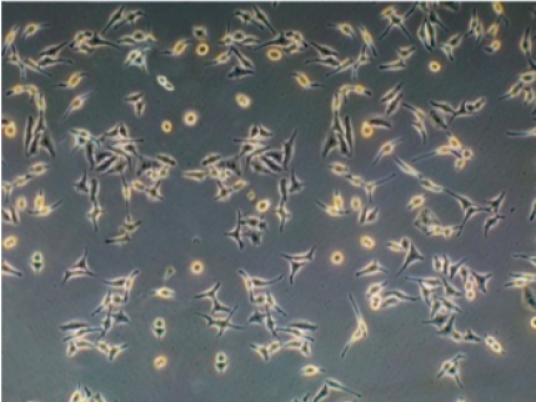
The ISET blood test is a revolutionary breakthrough in the field of cancer screening. Developed by French cancer specialist Patrizia Paterlini-Bréchot, based at the Necker-Enfants Malades Faculty of Medicine in Paris, the blood test allows the early detection of all forms of cancer and is currently being brought to market in Franc
This technical feat, accomplished by Patrizia Paterlini-Bréchot, professor of cellular biology and oncology at Paris's Necker-Enfants Malades Faculty of Medicine (Paris Descartes University), offers a means of detecting tumoral invasion in the early stages of cancer.
From the results of animal studies, the researcher and her team were already aware of tumor cells circulating in the blood years before metastasis occurs.
However, as Paterlini-Bréchot points out, patients die because of metastasis, not because of a primitive tumor. As with the HIV virus, she explains, these cells mutate, and by mutating they become more and more resistant because they are allowed the time to do so.
The result of seven years of research can be seen in the form of a large box-like device that carries out ISET tests ("Isolation by size of tumor cells"). This can detect the presence of circulating tumor cells — which are larger than blood cells — in 10 ml of blood, typically containing five billion red blood cells and 100 million white blood cells.
The test was proven effective in a trial at Nice University Hospital, which followed a group of patients with elevated risk levels — heavy smokers with pulmonary disease — for six years.
The test allowed researchers to detect tumor cells in the blood of five of the patients, well before lung cancer was visible by x-ray. These patients were operated on and subsequently cured of this most deadly form of cancer.
When circulating tumor cells are identified, targeted medical imaging techniques are then used to locate the tumor. Depending on a patient's predispositions and history, the scientists generally start by examining the breasts in female patients or the prostate in male patients. They then progress by scanning the entire body until the tumor is located.
However, in the future, the researchers should be able to save time by also identifying which organ the tumor cells come from. In fact, proteins found in cancerous cells can be used to single out the organ from where they originate.
The ISET test, which is currently being billed at a cost of €486 and is not covered by the country's healthcare system, could also be useful for monitoring patients in remission, as a means of ensuring cancer doesn't return and allowing cancer specialists to modify or adapt treatments for diagnosed patients.
